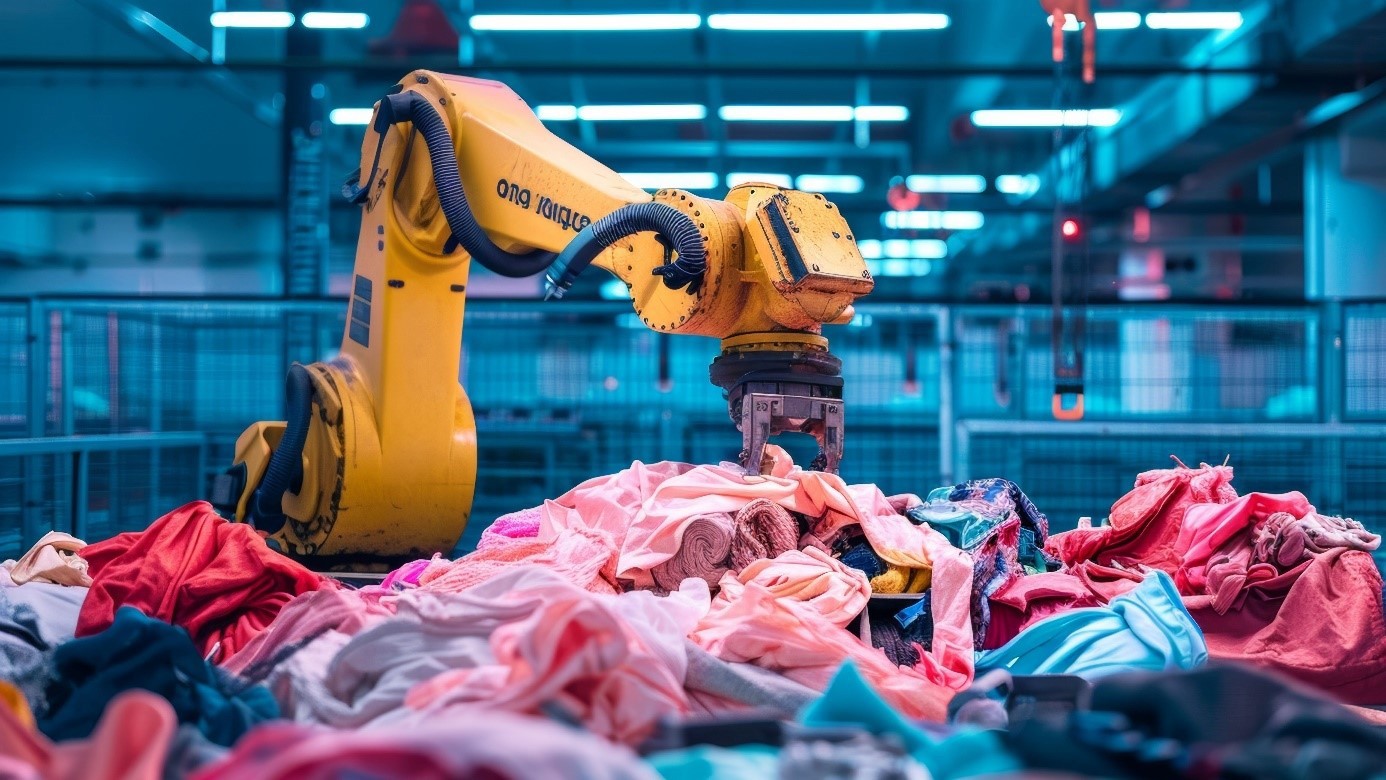Artificial intelligence for post- and pre- consumer waste management in the circular economy
2025-04-17

The circular economy aims towards a more sustainable fashion industry while substituting the linear fashion system. The current system leads to several challenges, including waste. Artificial intelligence is increasingly becoming the base for innovations, interdisciplinary research, and digital technologies to address challenges and drive the textile industry forward. However, the current main objective is to raise efficiency and fails to place the use of technology in a rounded perspective. Therefore, this study considers the use of AI in the circular economy. This offers a holistic approach to how AI can push the industry towards more responsible practices while targeting a key challenge and, consequently, provides impactful insights into the fashion industry's transition. The main findings in the literature are the high focus on AI use for classifying post-consumer waste for further recycling. However, a holistic approach considering the collecting, sorting, classifying, and additional alternative processes to recycling, i.e., repair, is not considered in literature. Furthermore, there is a research gap concerning pre-consumer waste management.
Conference paper
The fashion industry faces several challenges including textile waste ending up in landfills. The circular economy tackles challenges like waste and resource use, by keeping materials and resources in circulation. In many industries the move towards more sustainable practices and digital transformation are coinciding. The fashion industry in particular as a multi stakeholder industry needs radical innovations in processes and products to transition to a circular economy. AI as part of the Industry 4.0 and digital transformation has the opportunity to be implemented in every stage of the value chain. It is increasingly becoming the basis for innovations, addressing challenges and driving forward the sustainable industry.
The CE provides a guided framework to reshape the fashion industry. At the same time, the fashion industry is adapting technologies in the realm of Industry 4.0, but a clear focus on environmental and social aspects is missing. By combining waste management, circular economy objectives and the use of AI, a holistic approach in pushing the industry towards more responsible practices is provided and consequently, offers impactful insights for the transition of the fashion industry.
The current research landscape highlights a clear focus on post-consumer waste recycling, while pre-consumer waste is less discussed. AI is utilized to classify fibers and sort them for further recycling. Additionally, AI is used to categorize textiles according to size or detect stains on garments to enable decisions about further use of the garment.
Literature misses out on providing a holistic approach for textile recycling. It primarily focuses on the classification of textiles and neglects the collection of waste. Furthermore, literature does not take the resources it takes to recycle clothing into consideration. Highlighting the need for further research on a systematic approach integrating the collection, categorization and classification of textiles within the CE with the help of AI.
For pre-consumer waste AI is mostly used as a preventive solution to avoid overproduction and therefore waste resources.
The paper highlights the potential strategic integration of AI holds within a robust circular economy for the fashion industry. It offers a pathway to rethink traditional linear production and consumption models, moving beyond incremental efficiency gains towards a sustainable and responsible future for textile resources.
Project details
Type of Study: Conference Paper
Title: Artificial Intelligence for Post- and Pre- Consumer Waste Management in the Circular Economy: A Rapid Literature Review
Tagline: Artificial Intelligence as a potential driver for waste management in the circular economy.
Year: 2025
Language: English
Author: Veronika Kinzel
Course: Field Study
Program: Masters programme Textile Value Chain Management
Supervisor: Jenny Balkow and Marianne Louwerse
Technology: AI
Veronika Kinzel

